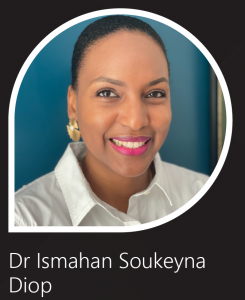Did you miss our first webinar, Pan-Africanism and Psychology in Decolonial Times, of our PsySSA 2022 Webinar Series – Facing the Future with Psychology: Perspectives, Praxes and People, don’t worry, watch the recording now!

Meet our Chair & Panellists!
Shahnaaz Suffla is a specialist scientist at the South African Medical Research Council-University of South Africa Violence, Injury and Peace Research Unit, and Professor Extraordinaire at the University of South Africa. Her research interests draw from the intersections of critical African, community and peace psychologies, and are located within liberatory philosophies and epistemologies. Her thinking and scholarship is influenced by the vision of research as a transforming and humanising enterprise.
Shose Kessi is Dean of the Faculty of Humanities at the University of Cape Town; Associate Professor in the Department of Psychology; and co-director of the Hub for Decolonial Feminist Psychologies in Africa. She has published on the psychology of racism in higher education and decolonial and pan-African approaches to psychology.
Floretta Boonzaier is Professor of Psychology at the University of Cape Town, and co-Director of the Hub for Decolonial Feminist Psychologies in Africa. She is noted for her work in feminist, critical and postcolonial psychologies, research on subjectivity in relation to race, gender and sexuality, work on gendered and sexual violence, and decolonial research methodologies. She is President-Elect of the Psychological Society of South Africa and an Associate Editor for the South African Journal of Science and past Editor in Chief for the journal Psychology in Society. Her recent publications include the co-edited volumes Engaging youth in activism, research and pedagogical praxis. Transnational and intersectional perspectives on gender, sex and race (Routledge, 2018), Decolonial Feminist Community Psychology (Springer, 2019 ), Men, Masculinities and Intimate Partner Violence (Routledge, 2020) and the co-authored book, Pan-Africanism and Psychology in Decolonial Times (Palgrave Macmillan, 2021).
Babette Gekeler is a clinical psychotherapist running a transcultural practice and lecturer at the International Psychoanalytic University of Berlin where she teaches Psychodynamic and Psychosocial Counselling with a focus on current societal issues and is a Co-Director for the Working Group on Refugee and Mental Wellbeing at the Network for Refugee Research. Her special research interests are in the investigation of cultural, racial and religious belonging and their relation to mental wellbeing and illness. Furthermore, participatory methodologies lie at the heart of her research engagement and interest. She received her PhD on Public Engagement with Multiculturalism from UCL in 2012, for which she has received an ESRC fellowship in 2007. She has regular engagements as a public speaker on issues relating to identity, group dynamics and wellbeing
Ismahan Soukeyna Diop holds a PhD in clinical psychology. She works as a teacher-researcher at the Cheikh Anta Diop University in Dakar, Sénégal. Since her obtention of a tenure-track position as a teacher-researcher at UCAD, she has managed the courses in the field of clinical psychology. Along with her colleagues, they have recently opened the department of psychology. Her fields of research are femininity and maternity in African mythology and tales. In her previous research, she was involved with women facing hysterectomy and breast mastectomy for psychotherapeutic support. As a result of this research, booklets of information were designed to be culturally appropriate and relevant for Senegalese women.
She has published the second book of this collection, African Psychologies, with Palgrave Macmillan in 2019, and has developed Tampsy Optoa, a psychotherapeutic tool based on African tales. Her current research focuses on the application of African traditional heritage, to clinical psychotherapy and community care, through the distribution of Tampsy Optoa to social workers, allowing them to provide psychoeducation and support to individuals and families facing mental health challenges.






